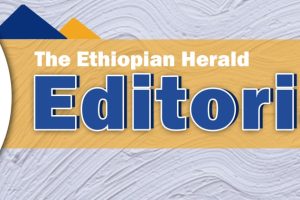
Media outlets in Ethiopia are universally tasked with disseminating timely, authentic, reliable and verified information for the public. They have also additional roles of educating and entertaining the public. Along with these, they also help the public to exercise their constitutionally granted rights to express their views freely within the framework of building a democratic society.
Regrettably enough, for over more than two decades since the down fall of the Derge, despite the deafening and recurrent claims made on media freedom and in spite of the existence of a press law, government owned media outlet were not only disseminating one sided and incomplete information to the public but served as a public relations forum for the government.
On the other hand, the commercial media outlets remained politicized, biased and even disseminated information that was disruptive, divisive, incoherent while the social media controlled by foreign companied continued to spread not only unverified false information but some of them were busy calling for ethinic conflict and disruption of the elementary rights to public freedom of movement and exercise of their human rights.
These polarized conditions coupled with the absence of a media policy that could help to regulate media activities in this country has created a chaotic condition in which the public was denied of a reasonable and balanced information and has resorted to a suspicion and disbelief on the information released by the media.
The Ethiopian media indeed the oldest in Africa, while the vast majority of the African countries were languishing under colonial rule, the media was used in Ethiopia as an effective tool of public relations for the consecutive regimes in power.
Let us look into the general profile of the media in Ethiopia to date. Ethiopia has three types of media outlets including public, commercial, and community and the social media. Accordingly, 12 commercial radio stations mostly of FM type, 18 commercial TV channels, 48 community radio stations, 10 public radio stations, and 9 public TV channels and another 3 educational radio stations.
In terms of press outputs, 13 daily and weekly public newspapers and 10 magazines are published at federal and regional level. Besides, 13 newspapers and 13 magazines are published by the private sector.
In terms of online media, since 2017, 10 online publications and 10 online broadcast media are operating in this country.
The point here is why Ethiopia is required to have a media policy and what should the content be.
With all intents and purposes, streamlining the media into the context of the general media reform in the country is critical both for the public audience and for those in the media business. Despite the provision of the constitution, media activity in Ethiopia has been restricted and curbed by various related laws and regulation that remained a hurdle both to the national media and the journalists who were suffering simply because they disseminated some piece of information.
For instance, one could easily run through the content of media and freedom of information proclamation 590/2008 to find out a considerable level of restrictions that are imposed on the media and the Revised Criminal Code of 2005 equally provides and a favorable scenario for imposing rigorous terms of imprisonment on journalists. The same was true for the Anti-terrorism Law of 590/2009 which was full of ambiguities on the concept of terrorism and terrorist actions.
Issuing a policy framework on the media per the reform will help to reinforce the right to information by citizens and the media alike as some of the officials in public offices have always been reluctant to provide the necessary information pursuant to the provisions of the constitution and the press law.
Among other things, a national policy on the media would help to promote the diversity and composition of the media based on public interest and the wide range of reforms. The policy in my understanding needs to encourage balanced, deeper and constructive critique of major social, political, legal and economic issues that define the nature of the political system in the country.
Furthermore, this policy can once and for all end the single handed supremacy of public media and serve both for the commercial, public and community media systems. This would mean any that any media policy for Ethiopia should be neutral and impartial. One can expect that such a policy should cover the need for self-review of the media through the council that was recently formed instead of being tied down by self-censorship.
It is also very important to define and redefine the role of the religious media centers and issues related to heavy tax on media accessories, journalistic and media ethics and the wellbeing and security of all those in the media business.
The Ethiopian Herald November29, 2019
BY SOLOMON DIBABA





